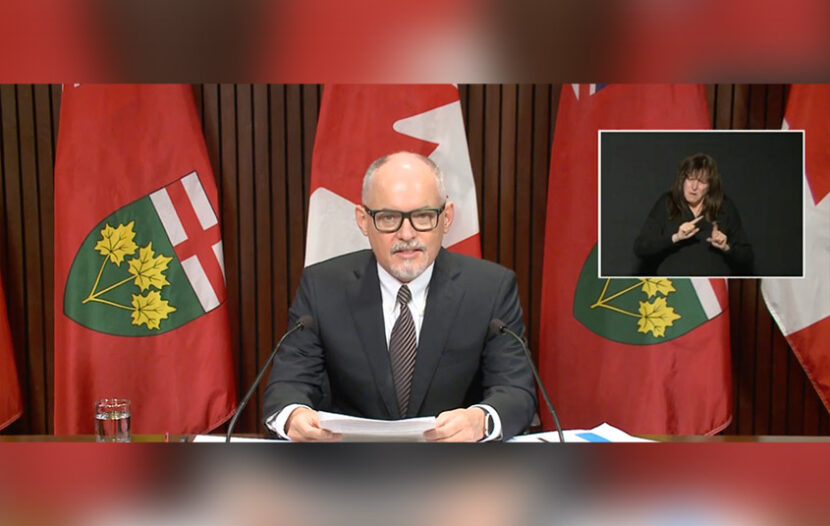TORONTO — As the world watches and waits to see the impact of the omicron variant, Ontario’s top doctor said measures could include shutting all but one or two of the province’s airports to international travel, in an effort to concentrate testing procedures for returning travellers.
Ontario’s Chief Medical Officer Dr. Kieran Moore noted that air travel and airports fall under federal jurisdiction.
He also stressed the importance of basic health and safety protocols – including getting vaccinated, and limiting social circles – in the face of the new variant. “I do want us all to remain calm, science-driven and evidence-informed,” he said at this morning’s briefing.
However when asked during the Q&A session what measures were on the table – that is, if the spread of omicron ramps up, or manifests as a more dangerous variant – Dr. Moore raised the possibility of just one or two Ontario airports remaining open to international travel, depending on the need for more on-arrival testing.
Canada was down to just four airports receiving international flights early in 2021 after Prime Minister Justin Trudeau announced strict travel measures, including the suspension of all sun flights through April 30, 2021, to curb the second wave of COVID-19 that peaked in January 2021. Many of the other airports have only finally just reopened in recent weeks, or are set to reopen for international travel Nov. 30.
So far Ontario has announced four cases of the omicron variant – two traced to arrivals coming into Ottawa, and two into Hamilton. On Friday the federal government announced new restrictions on travel from seven south African countries, where the omicron variant was first detected.
There are currently no direct flights into Canada from the region, however there are arrivals via indirect routes. Land and air travel restrictions between Canada and the U.S. have also eased in recent weeks.
Dr. Moore said some 375 returning Ontario passengers in recent days meet the criteria for precautionary quarantine and further testing.
On Nov. 26 Transport Minister Omar Alghabra said the federal government is monitoring the omicron situation closely. When Minister Alghabra was asked if the 7 south African countries were just a first phase,” he said: “We’ll always monitor and continue to monitor the data that we’re receiving from around the world … and we will take additional precautionary measures if necessary. We will constantly reevaluate and reassess that list of 7 countries.”
IATA’s Director General, Willie Walsh, released a statement following the emergence of the omicron variant.
“Governments are responding to the risks of the new coronavirus variant in emergency mode causing fear among the traveling public. As quickly as possible we must use the experience of the last two years to move to a coordinated data-driven approach that finds safe alternatives to border closures and quarantine. Travel restrictions are not a long-term solution to control COVID variants,” said Walsh.
Health Canada is currently reviewing Merck’s antiviral COVID drug, first announced earlier this fall. Meanwhile Canada has one of the highest vaccination rates in the world, with booster shots now rolling out along with first jabs for kids five to 11 years old.


